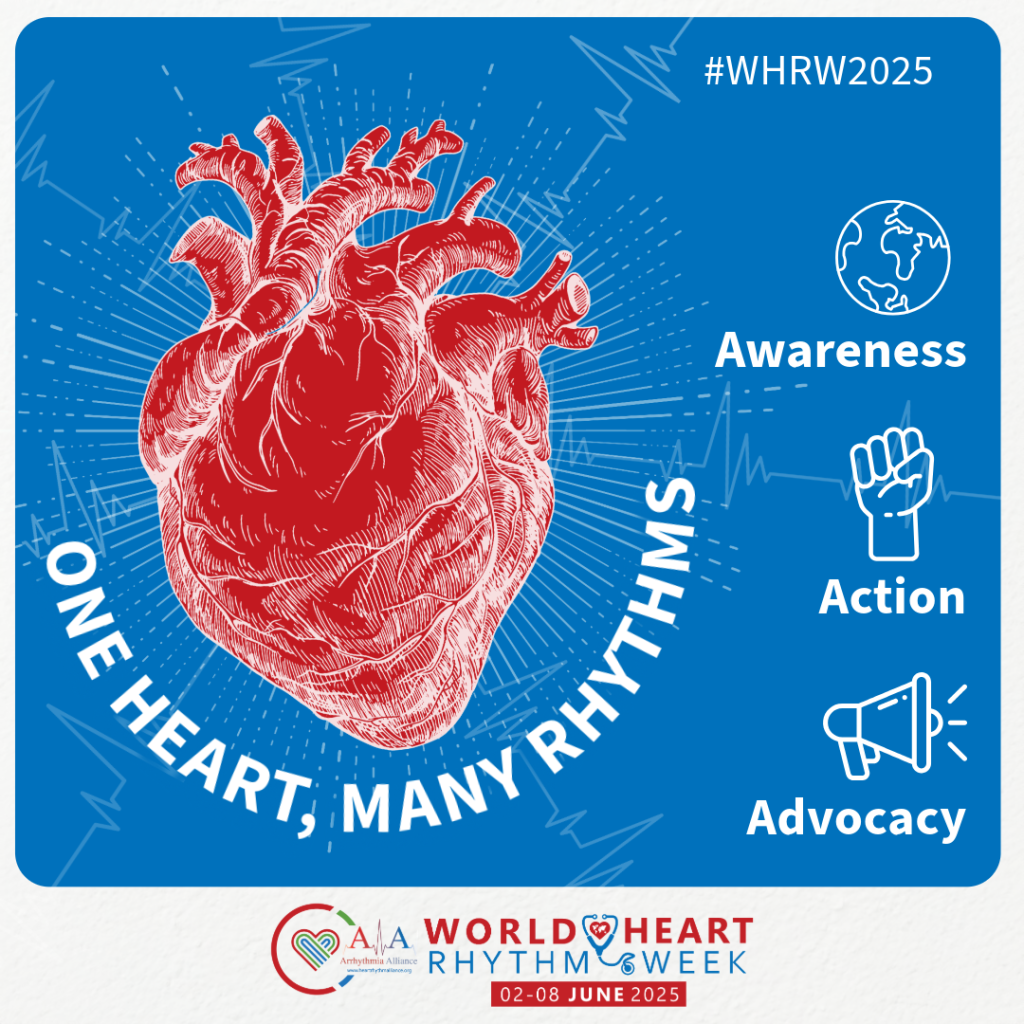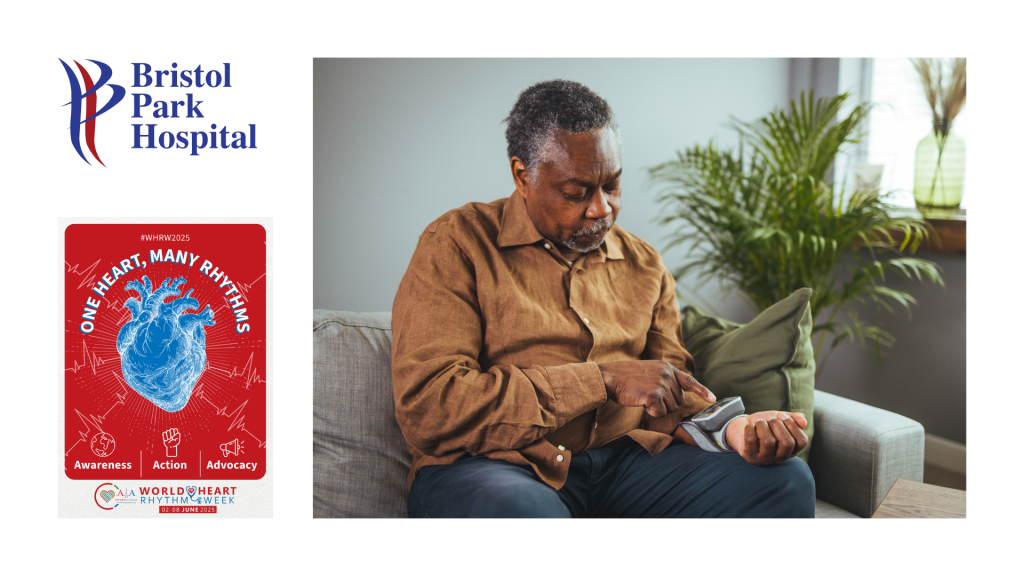Your heart has its own unique rhythm. Sometimes it races with excitement, slows with rest, or skips a beat. But what happens when that rhythm becomes irregular – not just occasionally, but persistently? That’s the world of arrhythmias, heart rhythm disorders affecting millions worldwide. This World Heart Rhythm Week (WHRW 2025, June 2nd-8th), with its powerful theme “One Heart, Many Rhythms: Awareness, Action, Advocacy,” we at Bristol Park Hospital invite you to understand these conditions better. Because knowing your rhythm could save your life.
Your heart’s electrical system is its natural pacemaker. When this system misfires, it causes arrhythmias. These aren’t all the same – they range from harmless palpitations to potentially life-threatening conditions.
Why Awareness Matters:
They’re Common: Arrhythmias affect people of all ages. AFib (Atrial Fibrillation) alone impacts millions globally and significantly increases stroke risk.
Symptoms Can Be Sneaky (or Silent): Some people feel nothing. Others experience:
Palpitations (fluttering, pounding, or skipped beats)
Dizziness or lightheadedness
Shortness of breath
Chest pain or discomfort
Unexplained fatigue
Fainting (syncope)
Early Detection is Key: Identifying an arrhythmia early allows for timely intervention, reducing the risk of complications like stroke, heart failure, or sudden cardiac arrest.
Action: Taking Charge of Your Heart Rhythm
Know Your Pulse: It’s the simplest rhythm check! Place two fingers on your wrist (radial artery) or neck (carotid artery). Feel for a regular beat. Is it too fast, too slow, or irregular? Do this periodically. (Bristol Park Tip: Ask our staff for a quick lesson on your next visit!)
Listen to Your Body: Don’t dismiss unusual symptoms like unexplained fatigue, dizziness, or that “funny feeling” in your chest. They could be important clues.
Prioritize Heart-Healthy Habits: What’s good for your heart is good for its rhythm:
Eat Well: Focus on fruits, vegetables, whole grains, lean proteins, and healthy fats. Limit salt, sugar, and saturated fats.
Move Regularly: Aim for at least 150 minutes of moderate-intensity exercise per week (e.g., brisk walking, swimming).
Manage Stress: Chronic stress can trigger arrhythmias. Explore relaxation techniques like deep breathing, meditation, or yoga.
Limit Stimulants: Reduce caffeine and alcohol intake, and avoid smoking.
Control Underlying Conditions: High blood pressure, diabetes, and thyroid problems can contribute to arrhythmias. Work with your doctor to manage these.
Seek Expert Advice: If you experience symptoms or have concerns about your heart rhythm, talk to your doctor. They may recommend tests like an ECG (electrocardiogram), a Holter monitor (portable ECG), or an event recorder.
At Bristol Park Hospital, we have a range of specialist clinics that provide expert care for specific medical conditions. Our team of experienced specialists works together to provide personalized care to each patient. We offer specialist clinics such as cardiology, neurology, gastroenterology, endocrinology, rheumatology, and more. Our specialists use advanced technology and state-of-the-art facilities to diagnose, treat, and manage complex medical conditions. Contact us today to schedule your appointment with our specialists and get the expert care you need.
Advocacy: Sharing the Rhythm, Amplifying the Message
“One Heart, Many Rhythms” reminds us that while each heartbeat is unique, the need for understanding and support unites us. Advocacy means:
Sharing Knowledge: Talk to your family and friends about heart rhythm health. Share this blog or reputable resources.
Supporting Others: If someone you know has an arrhythmia, offer understanding. Learn about their condition.
Pushing for Access: Advocate for widespread access to heart rhythm screening, diagnosis, and treatment in our community.
Participating: Join local WHRW events or online campaigns (follow #WorldHeartRhythmWeek and #OneHeartManyRhythms).


Your Heart's Rhythm is Our Priority
This World Heart Rhythm Week, let’s embrace the message: “One Heart, Many Rhythms: Awareness, Action, Advocacy.” By understanding the signs, taking proactive steps for our heart health, and speaking up about these conditions, we can all contribute to healthier hearts and longer, fuller lives.
Don’t ignore an irregular beat. Your heart’s rhythm tells a story – make sure it’s a healthy one.
Ready to take action?
Learn More: Visit the Bristol Park Hospital Cardiology Department page on our website for detailed information on arrhythmia services.
Talk to Your Doctor: Discuss any heart rhythm concerns at your next checkup.
Request an Appointment: If you need expert evaluation, contact Bristol Park Hospital to schedule a consultation with one of our cardiac specialists.
Together, let’s keep every heartbeat strong and steady.




